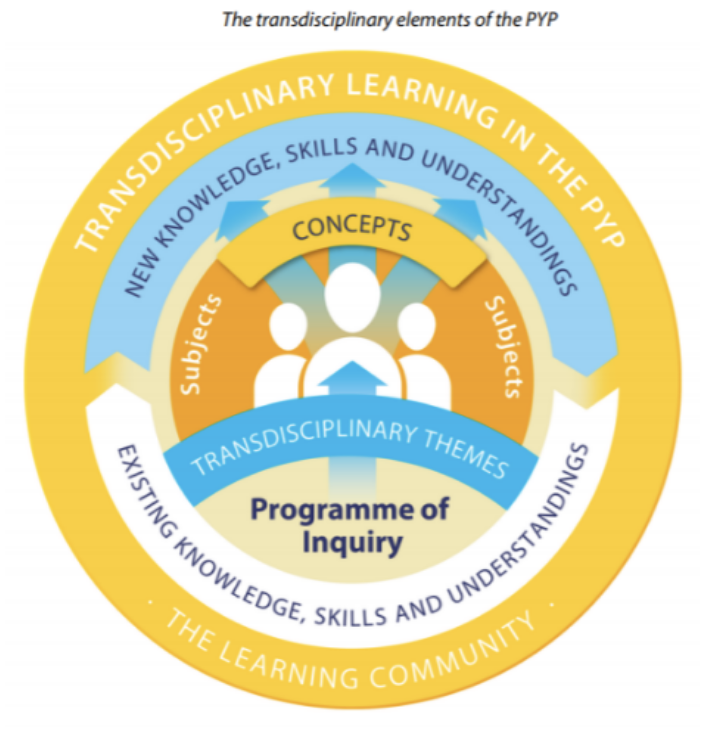
Transdisciplinary Learning
Transdisciplinary learning is learning that transcends subject area disciplines. In the PYP, there are Seven Key Concepts integral to Transdisciplinary teaching and learning: Form, Function, Connection, Change, Perspective, Causation, and Responsibility. These concepts further student understanding by serving as a vehicle for transferring understanding across subjects. For example, when the symbol in a math equation is "changed", a habitat “changes” due to deforestation, or a story "changes" through the process of revising, students understand that everything is always in a state of transformation and that change happens to everything and everyone.
In addition to Concepts, the PYP experience includes a variety of Approaches to Learning (ATLs) to help students develop the skills needed to learn across the curriculum, as well as to become life-long learners. There are five categories of ATLs: Thinking, Research, Communication, Social, and Self-Management Skills. In the PYP, there are six different Transdisciplinary Themes to help guide the learning process. These themes are global, timeless, and relevant.
The Six Transdisciplinary Units
Who We Are: An inquiry into the nature of the self; beliefs and values; person, physical, mental, social and spiritual health; human relationships including families, friends, communities, and cultures; rights and responsibilities; what it means to be human.
Where We Are in Place and Time: An inquiry into orientation in place and time; personal histories; homes and journeys; the discoveries, explorations and migrations of humankind; the relationship between and the interconnectedness of individuals and civilizations, from local and global perspectives.
How We Express Ourselves: An inquiry into the ways in which we discover and express ideas, feelings, nature, culture, beliefs and values; the ways in which we reflect on, extend and enjoy our creativity; our appreciation of the aesthetic.
How the World Works: An inquiry into the natural world and its laws, the interaction between the natural world (physical and biological) and human societies; how humans use their understanding of scientific principles; the impact of scientific and technological advances on society and on the environment
How We Organize Ourselves: An inquiry into the structure and function of organizations; societal decision-making; economic activities and their impact on humankind and the environment.
Sharing the Planet: An inquiry into rights and responsibilities in the struggle to share finite resources with other people and other living things; communities and the relationship within and between them; access to equal opportunities; peace and conflict resolution